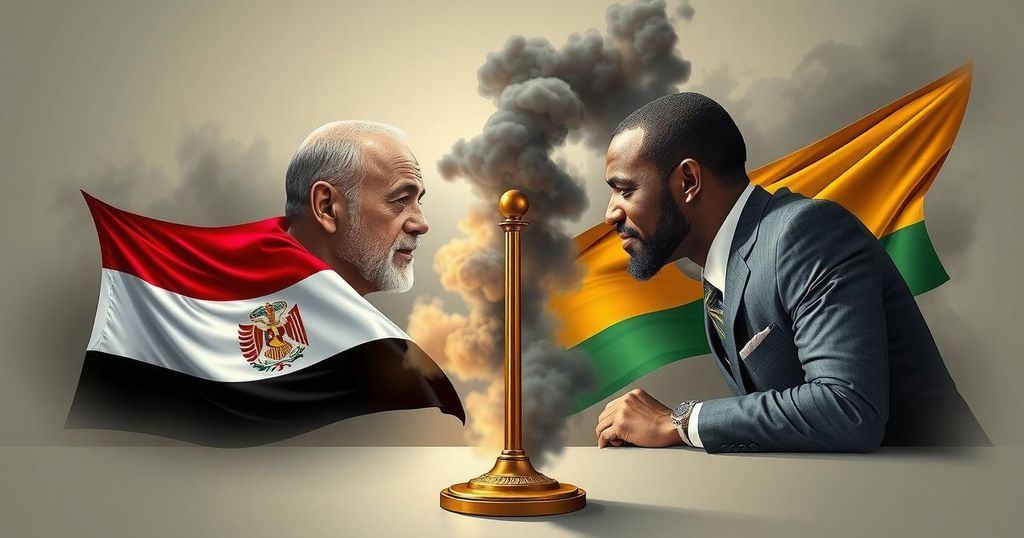Somalia’s Foreign Minister Ahmed Fiqi faces potential replacement by Ethiopia, which is met with resistance from Egypt amid strategic tensions. Somali President Hassan Sheikh Mohamud’s visit to Ethiopia marks an effort to strengthen bilateral ties while bypassing Fiqi’s influence. The delicate balance of power among Somalia, Ethiopia, and Egypt highlights the inherent challenges within regional politics and the need for a cohesive foreign policy approach.
Recent developments indicate that Ethiopia is advocating for the dismissal of Somalia’s Foreign Minister, Ahmed Fiqi, amid ongoing tensions involving regional allegiances. This situation is complicated by Egypt’s resistance to this change, which denotes the intricate nature of the geopolitical landscape in the Horn of Africa. Somali President Hassan Sheikh Mohamud’s ongoing visit to Ethiopia coincides with these developments, as he seeks to solidify diplomatic ties with Prime Minister Abiy Ahmed, despite the absence of Minister Fiqi from his delegation.
In his stead, Minister of State for Foreign Affairs has assumed the role of engaging on Ethiopia-related issues. Analysts note that this move could be aimed at diminishing ties between the Somali federal government and specific regional entities like Puntland and Jubaland, which have historically maintained robust relations with Ethiopia. The implications of these governmental dynamics extend into security matters, as Ethiopia’s role remains vital in providing necessary support against regional threats.
Amidst this backdrop, Egypt’s engagement in Somali affairs also underscores a power struggle, particularly as Cairo seeks to reinforce its partnerships with both Somalia and Eritrea, thereby counterbalancing Ethiopia’s influence. The political landscape exhibits a history of strife regarding alignment with external powers, as seen in prior dismissals of officials perceived to have aligned too closely with foreign interests.
Critics contend that the current Somali administration’s foreign policy lacks coherence and appears to lean towards personalized agendas rather than a cohesive national strategy. This inconsistency has exacerbated Somalia’s vulnerabilities to outside interference—an ongoing challenge for a nation in recovery from decades of conflict. Overall, the heightened tensions and reshaping of alliances reflect broader geopolitical rivalries within the Horn of Africa.
The geopolitical dynamics of the Horn of Africa are characterized by complex relationships among regional powers, particularly Ethiopia, Egypt, and Somalia. Ethiopia’s influence has historically extended through strategic partnerships with individual Somali states. Simultaneously, Egypt has sought to strengthen its own ties with Somalia to counterbalance Ethiopian expansionism. The replacement of foreign officials based on perceived allegiances adds another layer of complexity to the already fragile political environment in the region. These interactions are pivotal not only for bilateral relations but also for security cooperation affecting regional stability.
In summary, the current political maneuverings regarding Somalia’s Foreign Minister reflect deep-seated tensions influenced by regional alliances and competing interests from Ethiopia and Egypt. President Hassan Sheikh’s diplomatic pursuits signal a shift that may alter existing alliances within Somalia, particularly with federal member states. The resultant implications for Somalia’s sovereignty and security underscore the critical need for a more coherent foreign policy. As the region navigates these geopolitical rivalries, the path forward remains fraught with challenges.
Original Source: www.garoweonline.com






